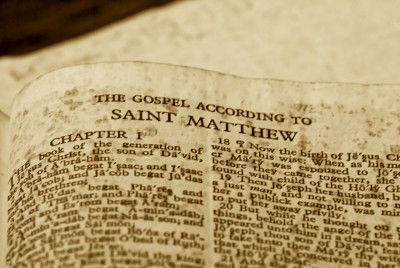Matthew 26:30-35; Striking
to Heal
“You will all fall
away because of Me this night,” Jesus in Matthew 26:31
“If we are faithless, He remains faithful – for He cannot
deny Himself,” (2 Timothy 2:13).
I have never heard anyone say, “The really deep lessons of
my life have come through times of ease and comfort.” But I have heard strong
saints say, “Every significant advance I have ever made in grasping the depths
of God’s love … has come through suffering.” (John Piper, “Where the Great King
Keeps His Wine”)
The setting has changed.
Night has fallen and they are back at the Mount of Olives where they
were earlier in the week (see 24:3). There is tension and an ominous feeling in the
air. Jesus turns
to His disciples and says, “You will all fall away because
of Me this night” (v. 31). That very evening, this is exactly what
happens. 26:56 records that after His
arrest, “all the disciples left Him and fled.”
Next Jesus quotes from Zechariah 13:7: For it is
written, “I will strike the shepherd and the sheep of the flock will be
scattered’ (v. 31). From our perspective it makes no sense that
God would strike causing the sheep to scatter.
Yet this is a pattern we see throughout Scripture. Joseph was sold into
slavery (Genesis 37:28), Pharaoh’s army pursued Israel (Exodus 14:8-9) and even
the Jerusalem church was struck and scattered due to persecution (Acts
8:1). To us it looks as if God means
to harm His people or He is not in control.
Yet from God’s perspective, the scattering of His people is part
of His plan; it is necessary for His glory and our good. In Zechariah, quoted
by Jesus here, the shepherd is struck so that Israel may heal. Joseph
testifies to God’s goodness in being sold to slavery (Genesis 50:20), the
nation of Israel sings how the Lord has “triumphed gloriously” because
Pharaoh’s chariots were “thrown into the sea,” (Exodus 15:1). The church, due to persecution, began its
first missionary pursuit by fleeing into “Judea and Samaria” (Acts 8:1, cf.
Acts 1:8).
Jesus also is aware that beyond the scattering and the
cross, there is a resurrection. He
tells His disciples, “But after I am raised, I will go
before you to Galilee,” (v. 32).
These instructions are repeated on Easter morning both by the angel at
the tomb and by the resurrected Jesus, (see 28:7, 10).
Ever since Jesus first tells His disciples that He will be
crucified, He also mentions His resurrection (16:21; 17:22-23; 20:17-19). But none of the disciples hear Him speak of
being raised; they only hear Him speak of the crucifixion. And they miss it again when Jesus says, “after I am raised,” (v. 32). Maybe this is because even though they knew
of the resurrection at the end of the age, as Martha mentions in John 11:24,
they had no category for the “first-fruits” (1 Corinthians 15:20) individual resurrection
of Jesus.
Peter then announces his allegiance to Jesus and exclaims, “Though they all fall away because of you, I will never fall away,”
(v. 33). Yet our Lord has plans to
strike Peter and make him even stronger.
Jesus said to him, “Truly, I tell you, this very night,
before the rooster crows, you will deny Me three times,” (v. 34). Luke adds this admonishment from Jesus to
Peter: “And when you have turned again, strengthen your brothers,” (Luke
22:32). Peter still doesn’t quite get it
yet and replies, “Even if I must die with You, I will not deny You,”
And behind Peter one can almost
hear a weak-hearted “me too!” as all the disciples said the same
(v. 35).
The bedrock of Christian living is not our faithfulness and obedience to the Christian life. Rather, the Christian life is our resting in
His faithfulness and obedience. To live the Christian life we must not trust
in our own valiant efforts. Rather we
need to allow His Spirit to control us and live through us like a hand occupies
and controls a glove. And when the Lord
strikes us, may we remember that He strikes to heal and to restore (see Isaiah
19:22). And when He scatters us, let us
stay faithful, knowing that a resurrection lies beyond the cross. 